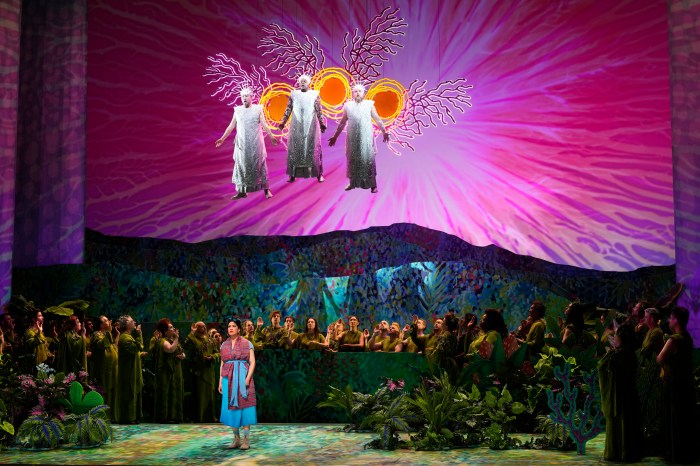
In June, Joy Harjo was named the next poet laureate of the United States. While she doesn’t take up the position until October, her new collection, “An American Sunrise,” shows her to be an ideal voice for our time.
Harjo is a member of the Muscogee (Creek) Nation, the first Native American U.S. poet laureate. Her identity is central to her verse, which is spiritual, musical, and deeply concerned with women, indigenous people and the plight of the planet.
“An American Sunrise” documents a return to her ancestral homeland in the southeastern United States and is both history lesson and traditional collection. The Creek, like other tribal nations, were ousted from their centuries-old lands under the 1830 Indian Removal Act and driven west along routes that came to be known as the Trail of Tears. Prose passages throughout the volume recount her ancestors‘ journey, her own story and relevant contemporaneous events.
Many of these poems are personal, such as “Washing My Mother’s Body,” a meditation on her mother’s life told while preparing her body for burial, or “Rabbit Invents the Saxophone,” a jazzy origin myth of the instrument played by Harjo and her grandmother.
While the focus is on the past, the present does not go unnoticed. The opening lament, “Exile of Memory,” warns against revisiting a time when “children were stolen … by the government” and put in “army-issued cages.” Later references grow even more explicit, as the righteous voice in “Advice for Countries, Advanced, Developing and Failing” which responds “We build walls … We separate children and cage them … We will make this country great again.”
It is notable that Harjo — perhaps — remains hopeful about the nation’s future, as she didn’t title this collection “An American Sunset.”

















